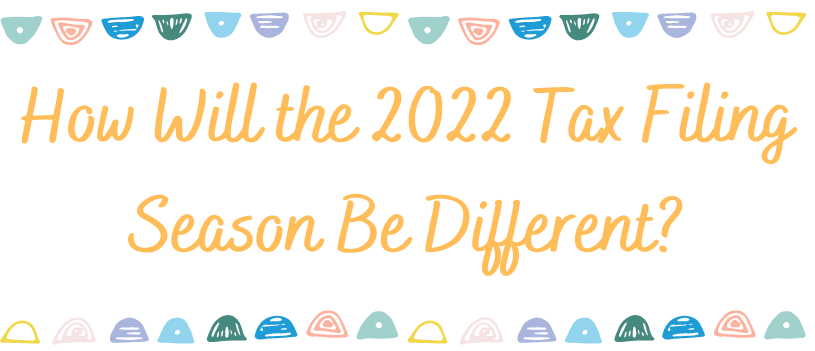The big question running through business owners’ minds this new year is, will the 2022 tax filing season be normal? Unfortunately, it is unlikely. The pandemic has caused a lot of policy changes over the last couple of years and also a large number of new tax law provisions which may complicate filings this year.
This season will be the third filing year since the beginning of the pandemic. The traditional filing deadline (for most) will be April 15, 2022, for those filing tax returns for the 2021 year. In 2020, the deadline was pushed back to July, however, the IRS isn’t expected to push back the deadline for the 2022 year.
Due to the American Rescue Plan Act (ARPA) that began in 2021, business owners should be aware that there may be some out-of-the-ordinary scenarios that may occur during this filing season. The following are some examples of the changes:
Economic Impact Payments
Americans received the third round of Economic Impact Payments (EIPs) in March of 2021 with a maximum payment of $1,400 as well as payments for those with qualifying dependents. The EIPs were not subject to federal income tax, however, it is possible you received less than you were entitled to and are therefore eligible for a credit on your tax return.
Child Tax Credit
The Child Tax Credit was enhanced by ARPA by increasing the maximum credit to $3,000 (and $3,600 for those with children under six years old). The amount is fully refundable and the IRS has authorized advanced payments of the credit, which began in July. Overall, this must be included in the 2021 tax return. Due to the advanced payment, it is important to note that your refund may be smaller than expected.
Dependent Care Credits
Similar to the Child Tax Credit, the Dependent Care Credit was also increased for taxpayers with an adjusted gross income of $125,000 or less to $4,000 for one child and $8,000 for two or more children. This credit was also made fully refundable.
Unemployment Benefits
ARPA provides tax breaks for some workers who lost their jobs during 2020. For example, the first $10,200 of unemployment benefits is exempt from tax if their adjusted gross income is below $150,000.
COBRA Subsidies
For those who leave a company, they have the option to continue health care coverage for a specified time frame under the Consolidated Omnibus Budget Reconciliation Act (COBRA). If an employee chooses to elect this coverage, they have to pay the bill which includes a 2% administrative fee. Thankfully, the ARPA provides a 100% subsidy for COBRA premiums between April 1, 2021 to September 30, 2021. The payments are tax-free for those who qualify for the benefit. For employers, you will be able to recoup your costs through the payroll tax credit.
In conclusion, many changes are taking place this filing season so you must reach out to your tax professional for assistance to ensure that you are filing correctly.
If you need a referral to a CPA to assist you with the more complicated returns, reach out to my office at 310-534-5577 or [email protected], and we will be happy to give you the names of those we know and trust.

Given all the changes, you definitely don’t want to file taxes by hand. It took me a while to find tax software that I was comfortable with for my business. I’d recommend anyone look at AMS’ software. If you’re still reluctant, they offer a free demo: https://www.1099-etc.com/software/demo/.
Thank you for sharing your feedback!